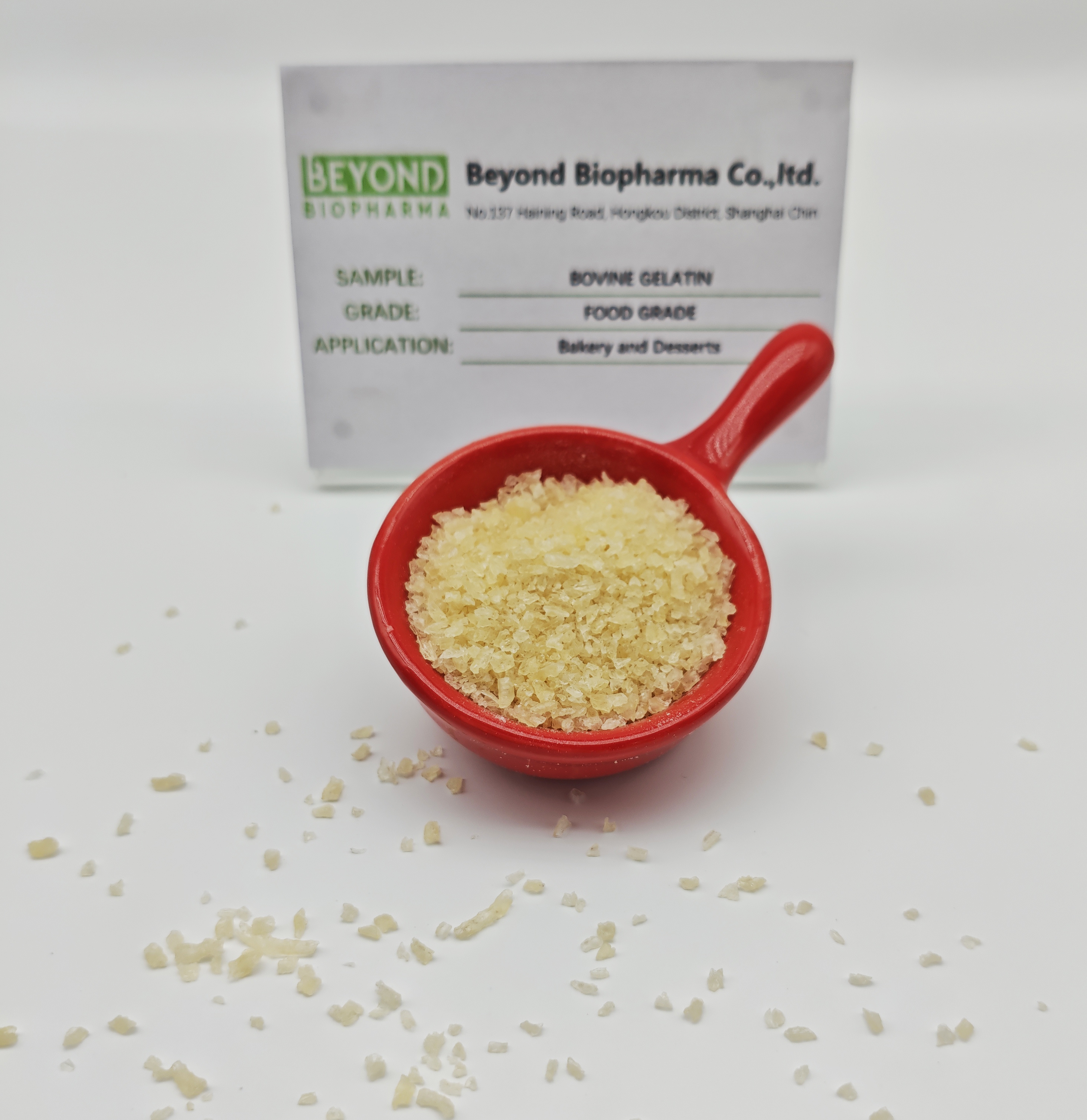Softgels are primarily used to contain oily liquids or paste-like fills and are becoming increasingly popular due to their ease of absorption. The softgel market is expected to grow at a compound annual growth rate of 9% over the next six years and reach $9.1 billion by 2028. Gelatin is by far the main gel-forming agent used in softgel production due to its natural properties, functional advantages and suitability for immediate-release dosages

Pharma Grade Gelatin Particles For Product Hard Capsules Soft Gel
Beyond Biopharm is China Based Manufacturer of pharma grade gelatin powder for Production of Hard Capsules or Soft Gels. Gelatin is able to be produced into both hard capsules or soft gels. Our bovine gelatin is produced from strictly controlled bovine hides and skins. We have china GMP certificate for production of Gelatin, hence, it is suitable for production of hard capsules for pharmaceutical produts.

For plant-based softgels, finding the right shell former or combination of the two to ensure optimal performance and production efficiency is not an easy task. Commonly used shelling technologies are a mixture of carrageenan and modified starch, but choosing the right carrageenan is critical. For example, capsule shells made from iota and k carrageenan are often too soft to withstand mechanical stress during production and storage. Customized carrageenan may be the best choice, which can achieve versatility in softgel production, excellent yield and excellent throughput, and its quality is similar to that of gelatin. Alternative carrageenan-free softgel technologies are based on gellan gum or special pectin. Gellan gum can be used to produce high-quality softgels, but its raw material cost is high.
The use of custom pectin in plant-based softgels is a recent development. VERDIGEL'M SC, launched by IFF in 2023, is a carrageenan-free plant-based softgel alternative to other vegan softgel technologies without compromising performance and quality. What are the challenges and opportunities when adopting these plant-based alternative technologies? How can these challenges and opportunities be addressed during manufacturing? Switching from gelatin to plant-based softgels can present a range of formulation challenges, including higher gel viscosity, lower encapsulation efficiency, and weaker seals. The key to success is the use of carrageenan in a shelling system that has been optimized for softgel applications.

Custom carrageenan enables production speeds of 4+rpm or more for softgels of various shapes and sizes, and for larger formats - 24 capsules or larger. This allows highly complex and viscous fill materials to be encapsulated with virtually leak-free softgel quality, achieving up to 98% yield. Manufacturers can also benefit from improved resistance to puncture or bursting during storage and handling, as well as higher yields and fewer scrapped capsules due to superior shell structure. This can save valuable production costs and time.
Market Outlook
What trends and developments have you observed in the plant-based/vegan softgel formulation market, and how have consumer preferences changed in recent years? Over the past five years, we have seen a steady increase in demand for vegetarian and vegan supplements, and there seems to be no sign of slowing down. In fact, as many as 45% of consumers say they want more plant-based vitamin, mineral and dietary supplement products on the market. While vegan formulations are gaining popularity across all modes of delivery, the shift is most evident in hard capsules, softgels and gummies. While gummies may have experienced rapid growth over the past five years, hard and softgels remain the most common modes of delivery.
Quality and Stability
Maintaining the stability and quality of softgel formulations is critical. How do you address the challenges of plant-based alternatives in terms of stability, shelf life and quality control compared to traditional gelatin-based products? Pectin is ideal for plant-based alternatives because it is a stable ingredient and is generally perceived by consumers as a healthy and safe natural product. Like carrageenan technology, pectin is easy to apply to the production process because it is compatible with industry-standard equipment currently used for gelatin softgels.
Pectin softgels also allow for special filling. They have higher heat stability than gelatin and can be filled with more viscous and concentrated substances because the filler can be heated without melting the capsule shell. The capsules are also ideal for e-commerce because they can withstand the heat and humidity during transportation and storage.
Post time: Jun-20-2025